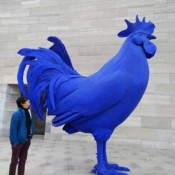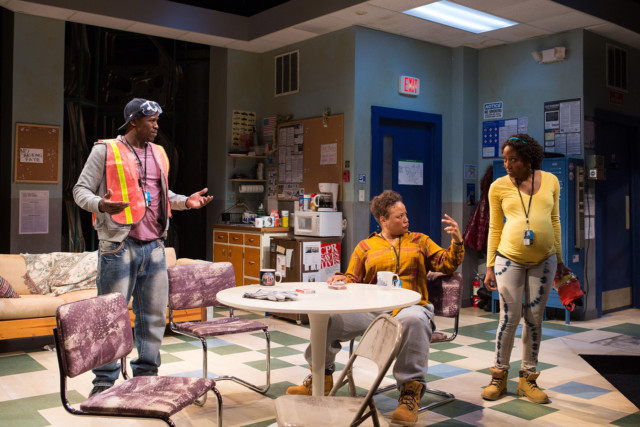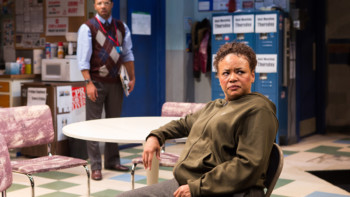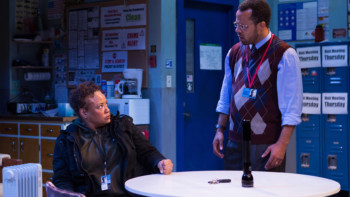It was a catchy, populist line. President Herbert Hoover’s 1928 campaign slogan was ‘a chicken in every pot and a car in every garage’. The phrase was his particular take on the so-called American dream, one that called for upward social mobility.
It’s no surprise that the automobile became the symbol of prosperity. American carmakers became the avant garde and, by the 1940s, the U.S. car market was the largest in the world. The boom translated into a windfall for Detroit, which became one of the country’s biggest and most prosperous cities. Due to its reputation for jobs and higher pay, Detroit attracted countless African-American families hoping for a better life.
Ahmad Coo is a producer and copy editor for the Global Business show on CGTN America. His analysis represents his views alone.
But nothing lasts forever. By the late 1970s and early ’80s, American car companies were eclipsed by their Japanese counterparts. The slow and steady decline of this industry was inevitable. To cut costs companies moved production to the suburbs, eventually devastating Detroit’s economy.
At the zenith of the U.S. car industry, nearly 2 million people lived in the city. By 2010, Detroit’s population dropped to 700,000. As a result, large parts of the city became littered with abandoned factories, businesses and homes.
Detroit’s collapse has became fodder for documentaries and numerous pop sociology books – all dissecting the city’s transformation from a booming city into an economic backwater. Most recently, there’s Kathryn Bigelow’s “Detroit,” which explores the 1967 race riots that tore the city apart.
Dominique Morisseau’s play “Skeleton Crew” is one of the few works that tries to portray Detroit in a more positive light. Even as it depicts times of economic and demographic upheaval. It’s the third installment of her ambitious three-play series named “The Detroit Project”. It’s currently playing at Washington D.C.’s Studio Theatre through October 8, 2017.
Morriseau, whose hometown is Detroit, says she wanted to explore the forces that shaped the city and also give voice to the people who lived through the crises years.
“Skeleton Crew” is set in the early 2000s when, save for a few plants, car manufacturing in Detroit had all but disappeared. The play’s main characters work at one of these remaining plants..
The four main leads (Faye, Dez, Shanita, and Reggie) still believe in the American dream. They take pride in their jobs, but sense the end is near and are on edge about being unemployed. Still, they soldier on because ‘the job’ is the only thing in the world that gives their lives meaning. Shanita, in particular, ties her entire self-worth to the production of cars.
Despite their gloomy circumstances, the characters are much like a family. Faye, for instance, is the matriarch/union rep that looks out for everyone.
From the beginning of the play we see that Morriseau is more concerned with her characters inner lives. More specifically, how they’re existing in a world where they can’t exercise a whole lot of control.
But somehow, the factory is the place where they can seek refuge and exert some influence or power – even if it is just manning their stations on the assembly line. As Faye would say to herself in one of her more vulnerable moments, “I belong here until the wheels fall off”.
In their work, Faye and her colleagues have value.
Faye’s sentiments are rooted in the American dream which, until the 2000s, were not kind to tens of millions of Americans searching for a better life. If anything, the last few years have shown that the dream is on its last legs, if not on its death bed.
But, even as they learn the plant will definitely be shut down, Faye and her co-workers persist. Unfortunately, Dez is suspected of stealing from the plant, ratcheting up tensions between the workers and the plant’s managers.
It puts Faye in a difficult spot because she has to choose between protecting one of her coworkers or siding with management. Complicating matters more, she’s only a year away from retirement that will give her full benefits. Either way, she’ll be forced to compromise someone’s future.
At one point, Faye is so exhausted that she utters one of the play’s most memorable lines: “I’ve lost everything. I’m running on soul.”
But this is where Morriseau breathes life into her characters’ American dreams.
From a more pessimistic perspective, one could say that the U.S. has entered a new normal: where upward mobility is no longer possible because of bad actors and the excesses of capitalism; where the rich get richer, and the poor lose hope.
Morisseau’s take, however, is one of hope. The economy may be falling around the American working class, but she still believes in the American dream – albeit a transformed one. It doesn’t guarantee wealth or even fame, but it’s a dream nonetheless. One that can provide pride and self-worth to those willing to work hard and hustle.
 CGTN America
CGTN America
 Jason Bowen (Dez), Caroline Stefanie Clay (Faye), and Shannon Dorsey (Shanita) in Skeleton Crew. Photo: Teresa Wood.
Jason Bowen (Dez), Caroline Stefanie Clay (Faye), and Shannon Dorsey (Shanita) in Skeleton Crew. Photo: Teresa Wood.



